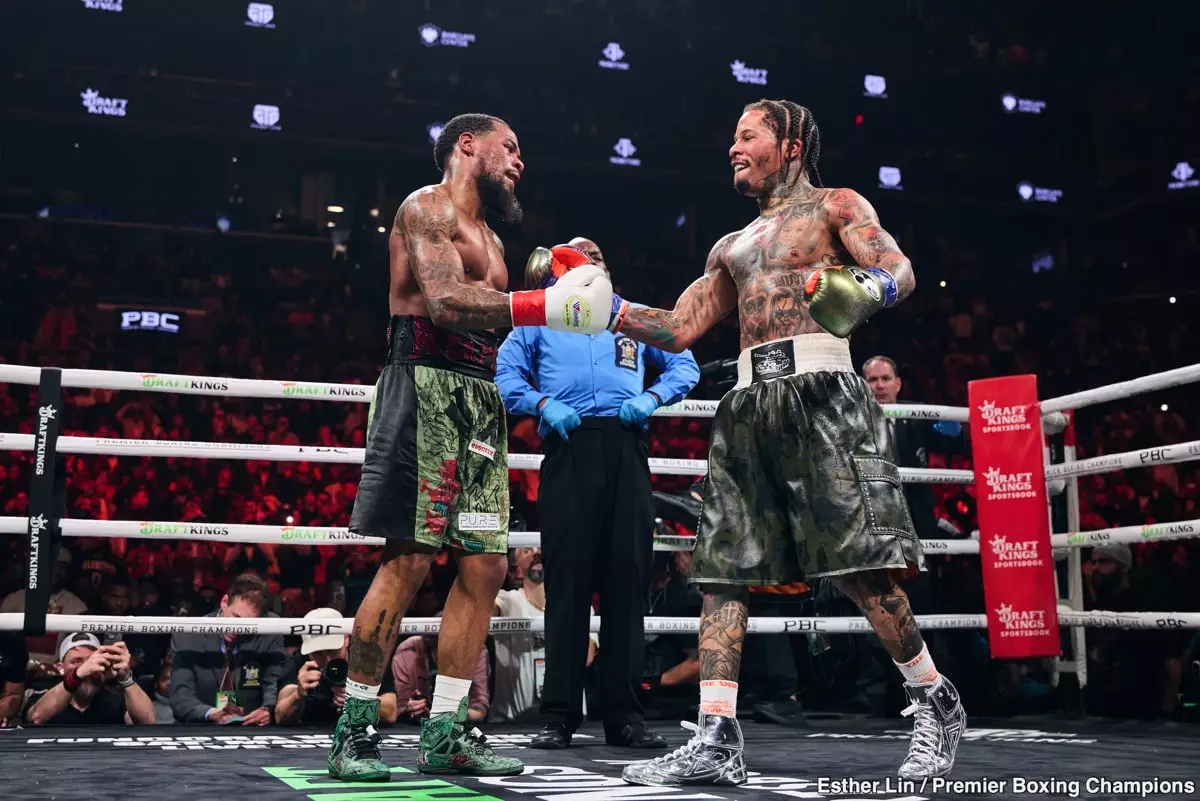Last Saturday, during a bout at the Barclays Center in Brooklyn, the lightweight championship conflict between Gervonta “Tank” Davis and Lamont Roach took an unexpected turn, sparking significant controversy in the boxing community. A pivotal moment came when Roach appeared to knock Davis down in the ninth round—a moment that many believe should have been ruled a knockdown. The referee’s oversight during this critical juncture raises questions about the integrity of officiating in the sport and the impact of such decisions on the fighters’ careers.
What compounded the incident was Davis’s claim of having hair grease in his eyes when he was knocked down. This assertion not only perplexed fans but also ignited debates about the justifications allowed in the sport. If fighters begin to utilize perceived distractions, like hair grease, to excuse not facing the consequences of being knocked down, the sport may find itself at a crossroads where the rules can be bent and misinterpreted to suit those in the ring.
WBA’s Stance and Implications for Davis
In a bid to address the fallout from this event, WBA president Gilberto Mendoza has announced his intentions to advocate for a rematch between Davis and Roach. However, the viability of such an initiative remains questionable. While Mendoza’s sentiments reflect the broader concerns of fairness and sport integrity, enforcing a rematch is not simply a matter of desire; it involves navigating the complexities of contractual obligations and personal choices of the fighters involved.
Davis, the reigning champion with a fight record brimming with accomplishments, is not incentivized to engage in a rematch he does not deem necessary. The WBA may wish for a rematch due to the outcry from fans and analysts alike, but Davis seems to have other plans, expressing disinterest in a sequel bout with Roach during his post-fight statements. Such declarations indicate a desire for Davis to explore more lucrative opportunities, particularly the rumored fight with social media mogul and boxer Jake Paul, which could offer substantial financial rewards compared to a rematch with Roach.
The dynamics of marketability in boxing cannot be ignored. Davis stands as a prominent figure in the lightweight division, with a large following that extends beyond traditional boxing fans. This makes him a valuable commodity within the sport. The allure of a fight against Paul, who has garnered immense attention and built a powerful personal brand, is difficult to overlook, especially from a financial perspective. When juxtaposed with the fight against Roach—who, despite being a skilled boxer, lacks the same promotional draw—the choice becomes clear for Davis.
If the WBA insists on pursuing a rematch but Davis opts to vacate his title instead, they could find themselves at a crossroads that diminishes their influence. The potential vacuum left in the lightweight division if a superstar like Davis relinquishes his title could lead to a less popular champion. Fighters like Floyd Schofield and Andy Cruz, currently ranked below Davis, may then vie for the vacant title, but the excitement surrounding that matchup would likely pale in comparison to a bout featuring Davis.
For Lamont Roach, the situation presents a double-edged sword. While the call for a rematch may elevate his profile, the lack of immediate opportunities can stall a fighter’s career momentum. As Roach prepares to negotiate his next steps, he must balance leveraging this controversy to propel his career forward while also remaining ready for whatever opportunities arise next.
On the other hand, Davis’s next fight, expected to be announced shortly, could redefine his trajectory. Aligning himself with high-profile opponents not only serves his financial interests but also fosters a narrative that keeps him relevant in the ring. The boxing world eagerly awaits the developments in this saga, which illuminates the delicate interplay between justice, athlete decision-making, and the commercialization of the sport.
The controversy surrounding the knocked-down incident raises far-reaching questions about officiating standards, the motivations that drive fighter decisions, and the importance of maintaining the integrity of boxing in a rapidly evolving marketplace.


Leave a Reply